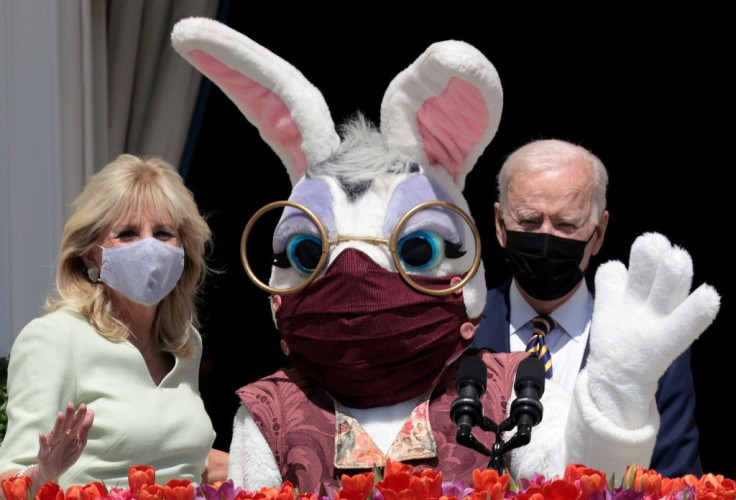Christmas might be a significant festival for Catholics, but the Holy Week, including Easter, is also an important time for Catholic people in Latin America.
In Latin America, the Catholic tradition still prevails in spite of the arrival of new religions and different spiritual practices, according to Healthy Hispanic Living. For Catholics across the globe, Easter symbolizes the day on which Jesus was resurrected three days after he was crucified on Good Friday, as per Home School Spanish Academy. As many as 285 million Catholics celebrate this religious holiday, and the Latin American culture has special traditions that delight others.
Semana Santa
Easter week is called Semana Santa in Latin America, and it’s the Christian commemoration of the passion, death, and resurrection of Jesus that happens annually. Going by traditions, Latin Americans recall what Jesus did for humanity and how his sacrifice opened eternal life to people's souls. During these days, everything like towns and religious centers revolved around Jesus.
Five significant days are part of Semana Santa, with the first one being el domingo de Ramos (Palm Sunday), during which Jesus went back to Jerusalem riding a donkey after 40 days in the desert. On his return, he was received by a huge crowd who proclaimed him the son of David.
Then there is Maundy Thursday, followed by Good Friday, and then Holy Saturday. They represent respectively the days of the last supper, Jesus’s passion, and his crucifixion. Finally, Easter Sunday represents the day in which Jesus resurrected. This day is apparently when Jesus conquered death and saved people from their sins, and it is a day of joy when life is a focus of celebration.
Latin Americans follow food restrictions
People are not allowed to eat red meat or pork, especially on Fridays between Ash Wednesday and Easter Sunday, and including Holy Week. This happens because it’s a representation of the body of Christ. The other reason is that people are in penance, fasting, and recollection, and also because 2,000 years ago, meat was considered a luxury product. So by not consuming this food, Christians wanted to pay tribute to the messiah through austerity.
Catholics in general, see this “sacrifice” as a way of preparing the souls and strengthening their will in order to avoid sinning. The most devout people usually fast on Good Friday while kids are allowed to have some bread and water.
During this season, people in different countries eat different kinds of foods like in Argentina, they eat Roscas de pascua. They are like sweet dumplings with pastry cream. They also eat Empanadas de vigilia, which are small patties that are filled with fish.
According to Hispanic Mama, Huevos de pascuas or chocolate eggs are part of the Easter celebrations in Argentina. A variety of traditional food, drinks, and desserts are eaten by Guatemalans during this time. Some of them are Ensalada de escabeche, which is a salad also known as canned vegetables, and Tamalitos de viaje guatemaltecos, which are made from corn dough, and are wrapped in a tusa (cornhusk) leaf.
Important religious events Latin Americans mark
There are different events or traditions that people mark to commemorate the passion, crucifixion, and resurrection of Jesus during this time, especially in Semana Santa. Some of them are religious parades when the images of Christ, the Virgin, and the cross are taken out of the churches and are put on the procession. Then the Vía Crucis consists of walking spiritually the path that Jesus made to Mount Calvary while carrying the cross. It is also the opportunity to internalize his suffering.
In Colombia, there is a tradition of giving jewelry as offerings in the images of Jesus, for the purpose of forgiveness.
The Latin Easter Bunny
There are also customs for kids that are fun, with the biggest tradition involving the Easter Bunny, in which, during Easter Sunday, parents hide chocolate eggs with different sizes, shapes, and colors. The fun part is that kids have to find them. The child who finds the biggest amount is declared as the winner. It's more than fun as the eggs symbolize life and are a representation of how life started again, thanks to Jesus.

© 2025 Latin Times. All rights reserved. Do not reproduce without permission.





